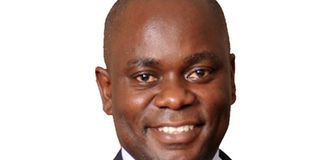What has changed since NRA attack on Masindi 35 years ago?

Fred K. Muhumuza
What you need to know:
- Quality of education. The current status can hardly compare with the quality of education we obtained despite walking very long distances.
- While the military battles have subsided, the war against poverty, hunger and disease rages on. My hope is that Uganda can end this new war although the basic fundamentals (social, economic and political) for victory continue to be eroded by the day. It should not be another 35 years.
On the February 20, 1984, we woke up to the sound of gunfire and grenades in the military barracks just a kilometre away from Kabalega Secondary School.
Quite often, the students had skirmishes with soldiers over alcohol, women and football games since our school and the army had the strongest teams in the district.
Although soldiers often fired off guns as part of their regular training, this day was different. It turned out that Salim Saleh (Member of High Command) had come with hundreds of guerrillas to collect guns, ammunition, medicines, clothes, food, etc.
It was not the first time the guerrillas were disrupting our education. They had done it almost every day by denying us electricity to read at night and have piped water in the town. The electricity lines to Hoima and Masindi went through the war zone of Kiboga and prevented repairs to electric poles for months on end.
Thirty days of electricity per year was worth a regional celebration. The school had adopted a creative way of running classes between 7am and 2pm to create time for personal reading from 3pm to 5pm. Beyond that, we were free to go as far as our legs could carry us into the villages to, officially, collect water but quite often add on the ‘extras’ that led to fights with the soldiers.
The visit by the guerillas was a continuation of a troubled struggle for education in a country that had already been ripped by political and economic wars. I recalled my earlier journey that had seen me study in four primary schools looking for the highest probability of getting a first grade in P7.
It was not common for a sub-county to get 20 first grades, 18 from one school, and by pupils who had repeated P7 for more than three years.
When I finally sat Primary Leaving Examination (PLE), the average age of my class was 18 years with one married boy/man aged 22. Just a few of us were below 15 years. The guerilla attack on Masindi forced me to temporarily relocate to Sir Tito Winyi SS and I feared my journey in secondary was getting similar to that in primary.
On July 26, 1985, 17 months later, Masindi had another attack by a group of rebel units in the government army that later proceeded to Kampala to effect Uganda’s last military coup of July 27, 1985. It was time to relocate to Hoima and begin the journey of education outside schools.
The ensuing battles that went on for months and the destruction of the school infrastructure meant that we could only go back to Kabalega S.S in May 1986. Even then, it was just for a while as a students’ strike sent us home until the month of final Uganda Certificate of Education exams.
Three decades later, the country is very peaceful, but students still drop in and out of school due to lack of tuition, diseases, general poverty, grabbing of land, etc.
More so, fewer students can scavenge in the rural schools as I did and make it to Makerere University and proceed to acquire a Doctorate, paid for by the British government.
The current status can hardly compare with the quality of education we obtained despite walking very long distances. While the military battles have subsided, the war against poverty, hunger and disease rages on.
My hope is that Uganda can end this new war although the basic fundamentals (social, economic and political) for victory continue to be eroded by the day. It should not be another 35 years.
Dr Muhumuza is a development policy analyst committed to inclusive growth.
[email protected]




